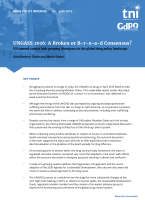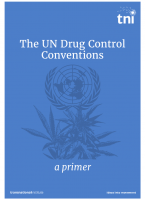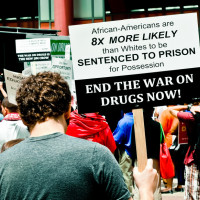Edging Forward How the UN’s language on drugs has advanced since 1990
Temas
Diplomatic processes at the United Nations are notoriously slow and difficult, perhaps increasingly so in a modern world of multi-polar geopolitics and tensions. This is certainly no different for the highly charged and provocative issue of international drug control.
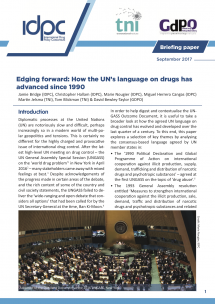
Descargar PDF
Autores
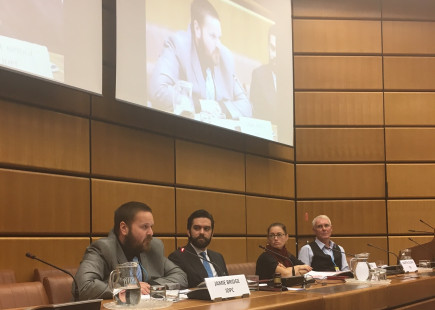
After the latest high-level UN meeting on drug control – the UN General Assembly Special Session (UNGASS) on the ‘world drug problem’ in New York in April 2016 – many stakeholders came away with mixed feelings at best. Despite acknowledgements of the progress made in certain areas of the debate, and the rich content of some of the country and civil society statements, the UNGASS failed to deliver the ‘wide-ranging and open debate that considers all options’ that had been called for by the UN Secretary-General at the time, Ban Ki-Moon.
In order to help digest and contextualise the UNGASS Outcome Document, it is useful to take a broader look at how the agreed UN language on drug control has evolved and developed over the last quarter of a century. To this end, this IDPC briefing paper explores a selection of key themes by analysing the consensus-based language agreed by UN member states. The briefing studies the evolution in agreed language on: the success/failure of drug control, harm reduction, human rights, development, civil society engagement, criminal justice responses and fexibilities in the conventions, access to controlled medicines and UN system-wide coherence.





